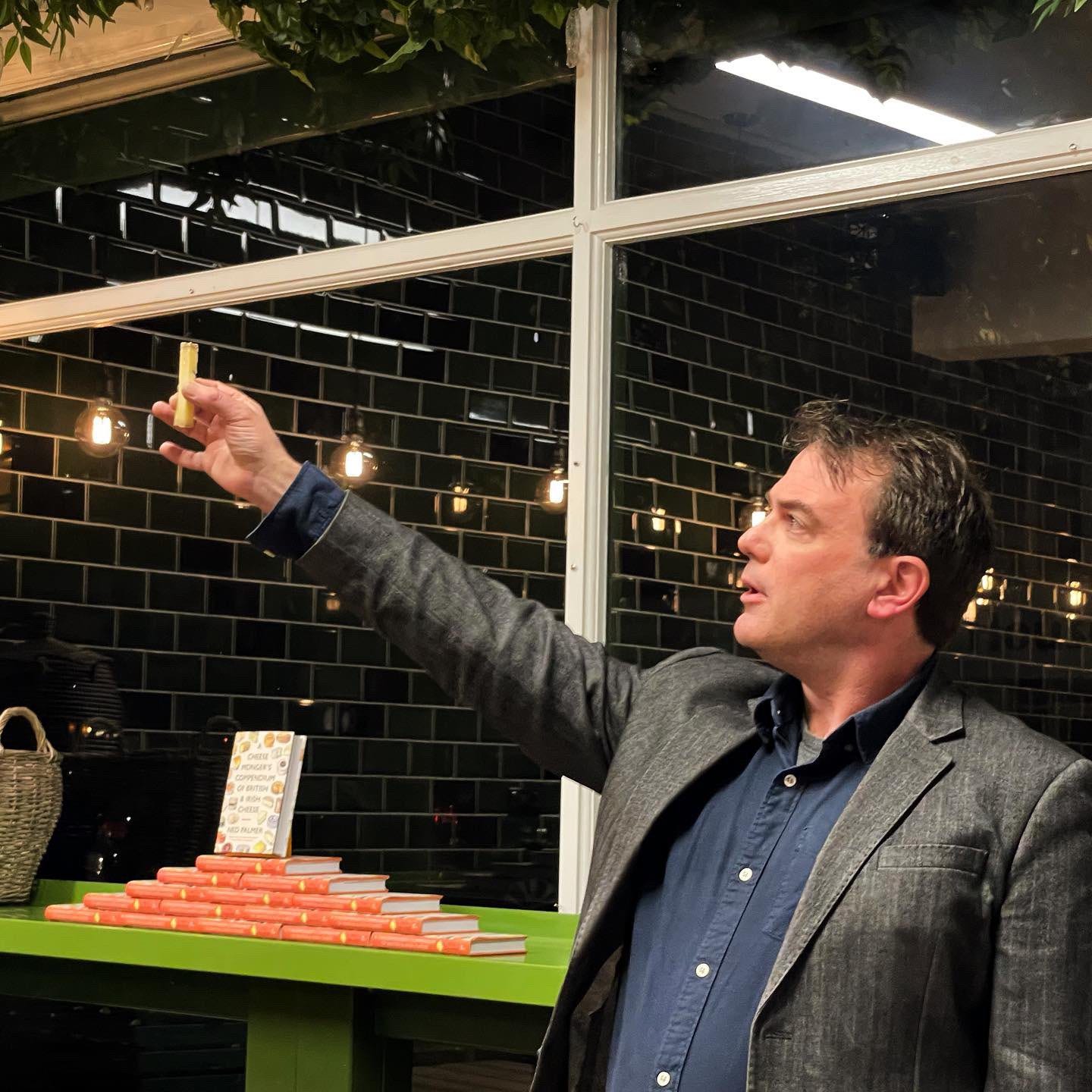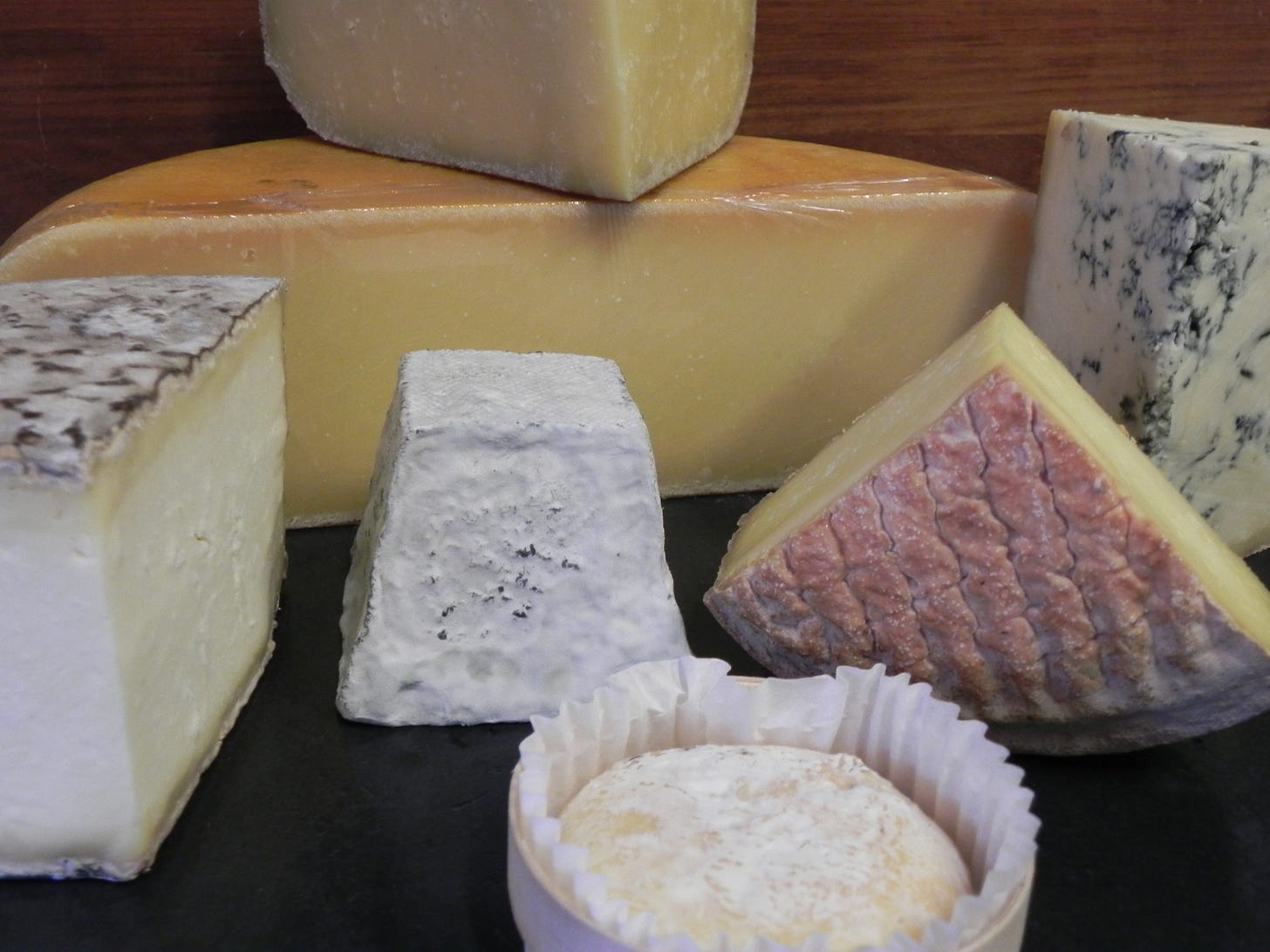Hi there and welcome to my first post on A Cheesemonger’s Odyssey. Congratulations on finding me!
I thought I’d better make a couple of things clear before we go any further - namely, what do I mean by cheese and what kind of cheese I will mostly be talking about:
What is it?
Cheese is a foodstuff made by coagulating milk so that the solids (fat, minerals and proteins) become more concentrated. Some definitions also require that the milk sugar - lactose - be fermented by bacterial starter cultures, which excludes things like Ricotta and Paneer, but I am more relaxed about that. Though personally I do find the fermented cheeses more interesting.
I’m in good company here, in that this is pretty much the definition of cheese agreed by the World Health Organisation and the Food and Health Organisation of the United Nations, and all the dictionaries I could be bothered to read.
For the philosophers among you, I define milk as a liquid produced by the mammary glands of mammals. You will notice that this excludes vegan cheese substitutes - a noble endeavour no doubt, but of little interest to me personally. Maybe come back in 10,000 years or so when they’ve got a bit more history and (human) culture behind them…which brings me to:
Proper Good Cheese
You will hear this phrase a lot from me - though admittedly it is a more idiosyncratic, and fuzzier category than the above.
I’m interested in ‘farmhouse’ cheeses - made by the milk from the cheesemakers own animals; or ‘artisan’ cheeses, made from milk that has been bought from a farm or farms the maker knows, can name to me, and are local for some common-sense, widely-agreed value for local.
Scale matters to me, as in ‘small’. I don’t have an exact number, but I know it when see it. We’re talking in thousands of kilos, not thousands of tons. On the whole I am looking for some sort of hand-madeness about the cheese, or that where there is some form of mechanisation, that it has no effect on the quality of the cheese.
I like what tradition does for a cheese. So let’s say, fairly arbitrarily, that I am interested in cheeses that have a least a century of history behind them. A the same time there are plenty of smashing cheeses that have a much shorter pedigree.
Essentially, there is an intersection of scale, hand-madeness, the use of traditional knowledge, and modern science and technology about the cheeses I’m interested in. I love raw milk cheeses - I like to believe these tend to be particularly distinctive and show an exciting variation from batch to batch. I don’t rule out well made pasteurised cheeses either.
Is there a tinge of the romantic to this? Absolutely. I am seduced by the romance of cheese: the thousands of years of history, the culture, craft, tradition and the mystery of it all - which by the way is expressed as much in my friend Bill Oglethorpe’s shiny modern London dairy as it is in a tiny earth-floored hut in the Carpathian mountains. Practically speaking, I think that applying these criteria gives me the best chance of eating great cheese, and having a profound experience.
Here endeth the lesson. Let’s go and eat some cheese…





